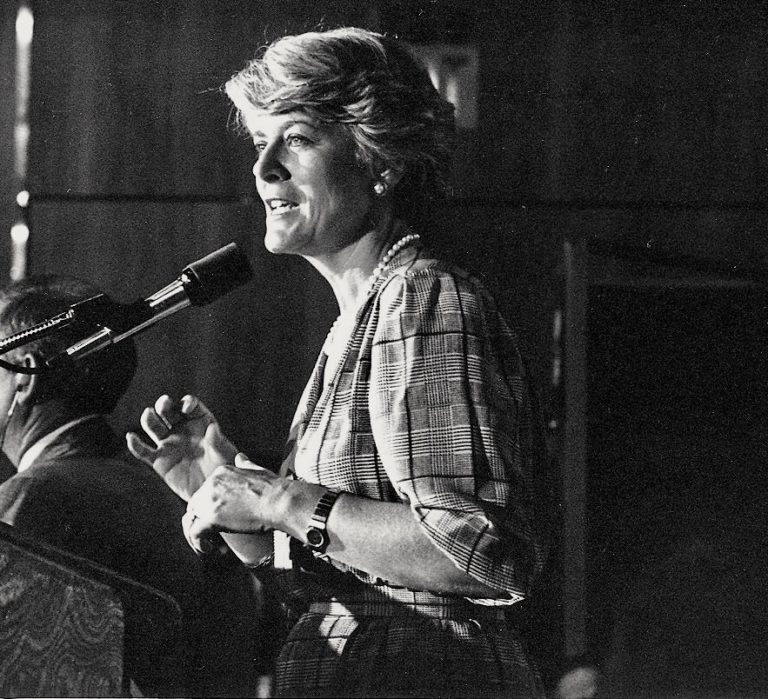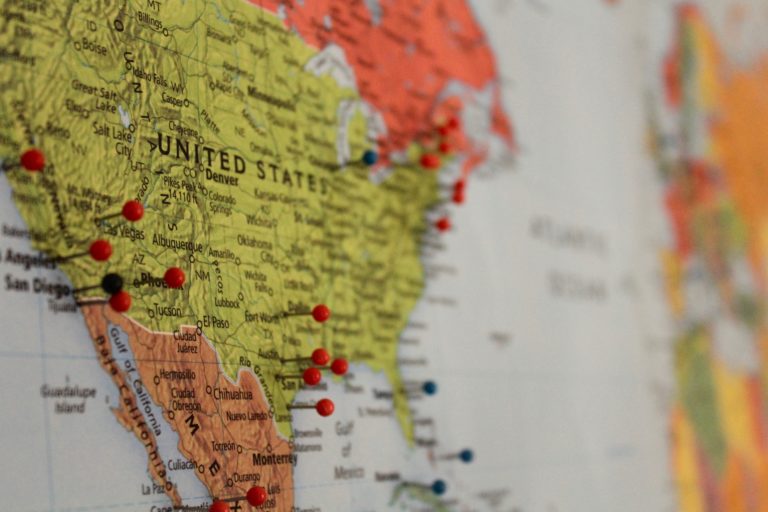It’s a popular question on the presidential campaign trail to ask the male Democratic…
Writing a New Playbook: Campaigning to Be the First Woman VP

It’s been a historic week, as Joe Biden chose Kamala Harris to be his running mate, making her the first woman of color ever to be on a major party presidential ticket. Over the last 150 years, only two other women have ever been running mates on a major party presidential ticket. Compared to 70 men.
A lot has changed in the 12 years since Sarah Palin joined John McCain’s presidential ticket. Women have made major strides in political fields—for one, a record-breaking number of women were elected to the U.S. House of Representatives in 2018. As our founder Barbara Lee said, “I believe that the excitement about the record number of women elected to office in 2018 paved the way for multiple qualified women to appear on the presidential debate stage this cycle….Having multiple women allowed them to throw out the old playbook and run as their authentic selves.”
The notion that women candidates aren’t as electable as their male counterparts is a myth. However, despite those recent strides in 2018 and earlier in this presidential election cycle, our 2019 research shows that women candidates are still held to different and higher standards than men on the trail. And that goes doubly for Black women. Let’s take a look at the obstacles facing women seeking executive office—which Harris is, as second-in-line to the presidency:
- While men are assumed to be qualified, women candidates have to prove over and over they are up to the job. We already saw this often in the 2020 Democratic primary. Men can tell, while women have to show—voters need evidence that women can succeed in the role.
- Women candidates must satisfy two gender stereotypes: voters expect her to be strong enough to handle difficult situations, but she must avoid jeopardizing her likeability (a non-negotiable for women) by being “too tough.” Our research shows that voters will vote for a man they don’t like, but will not do the same for a woman.
- Voters want a candidate who can handle a crisis. Our research found that voters view capably handling a crisis as a top trait when assessing a woman’s electability. Two-way communication—both sharing information and listening to experts and people impacted—is essential for leaders in a crisis. In the midst of the COVID-19 pandemic, its economic impact, and racial justice uprising across the country, this could be especially important in 2020.
- Authenticity is important. Voters want a 360-degree candidate. They want to see the whole of the candidate’s human experience, and how it will affect the decisions she makes as a leader. Women in politics have recently been successfully serving in office as their authentic selves. With no roadmap for her candidacy, Harris can show voter the 360 degrees of her human experience, and how it would influence her as a VP.
- Women candidates pay a higher price for “going negative,” even though all candidates must show how they differ from their opponents. This has been evident already in the VP selection process.
Biden and Harris are expected to make their first public appearance today, and then attention will turn to the Democratic National Convention, which starts next week. We’ll be watching to see how the double standards play out—and how the Biden-Harris team handles their historic campaign.







